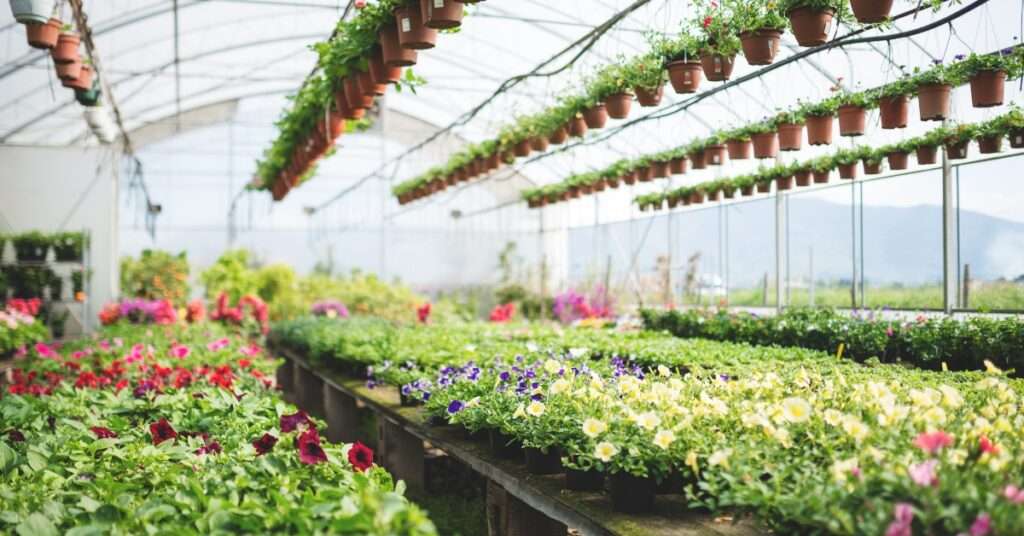The Science Behind Healthy Plants: Soil, Water, and Light
Understanding the fundamental needs of plants is crucial for any gardener or plant enthusiast. The triad of soil, water, and light forms the backbone of plant health, influencing growth, flowering, and overall vitality. Let’s delve into the science behind these essential elements and learn how to optimize them for your plants. Soil: The Foundation of Plant Health Soil is more than just a medium for anchoring plants. It’s a dynamic environment teeming with life and nutrients. The quality of soil can significantly impact plant health, so understanding its components is essential. Soil Composition: Soil is composed of minerals, organic matter, air, and water. The ideal soil, often referred to as loam, contains a balanced mixture of sand, silt, and clay. This composition ensures proper drainage while retaining necessary moisture and nutrients. Nutrients: Essential nutrients like nitrogen, phosphorus, and potassium are vital for plant growth. Nitrogen promotes leafy growth, phosphorus is crucial for root development and flowering, and potassium enhances overall plant health. Regularly testing your soil can help determine nutrient deficiencies and guide fertilization practices. pH Levels: Soil pH affects nutrient availability. Most plants prefer a slightly acidic to neutral pH (6.0 to 7.0). Testing soil pH and amending it with lime (to raise pH) or sulfur (to lower pH) can create an optimal growing environment. Water: The Lifeline of Plants Water is essential for photosynthesis, nutrient transport, and maintaining plant structure. However, both overwatering and underwatering can harm plants. Watering Techniques: Different plants have varying water needs. Some thrive in consistently moist soil, while others prefer to dry out between waterings. Understanding the specific requirements of your plants can prevent issues like root rot or drought stress. Water Quality: The quality of water can also impact plant health. Tap water containing high levels of chlorine or fluoride can harm sensitive plants. Rainwater or filtered water is often a better option for watering plants. Irrigation Systems: Efficient irrigation systems, such as drip irrigation or soaker hoses, deliver water directly to the root zone, minimizing evaporation and runoff. These systems are especially beneficial in areas with limited water resources. Light: The Energy Source Light is the energy source for photosynthesis, the process by which plants convert light into chemical energy. The quality, duration, and intensity of light all influence plant growth. Light Quality: Plants primarily use blue and red wavelengths for photosynthesis. Full-spectrum grow lights that mimic natural sunlight can be used to supplement light for indoor plants. Light Duration: Different plants require varying amounts of light exposure. Long-day plants, such as spinach and lettuce, need extended daylight hours, while short-day plants, like chrysanthemums and poinsettias, require longer periods of darkness to bloom. Light Intensity: Light intensity affects the rate of photosynthesis. Too much direct sunlight can scorch plants, while too little light can lead to leggy, weak growth. Positioning plants according to their light requirements—full sun, partial shade, or full shade—can ensure they receive the appropriate light intensity. Bringing It All Together Creating a thriving garden or indoor plant collection involves balancing these three elements. Regularly monitoring and adjusting soil quality, water practices, and light conditions can lead to healthier, more vibrant plants. Book Your Unforgettable Escape Today Off Grid Rajasthan is more than just a homestay; it’s an experience. Book your getaway today and embark on a journey filled with adventure, relaxation, and the warmth of rural hospitality. The calmness that will bring your mind in peace. Book your stay now for a perfect blend of tranquility and learning at our OffGrid Rajasthan Homestay! Contact no: +91- 9313175332 📍 Kotputli Rajasthan (A comfortable 2-hour drive from Gurugram) Off Grid Rajasthan


